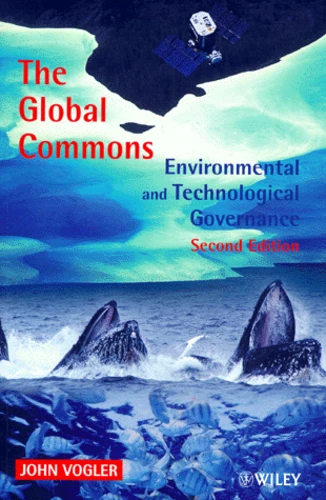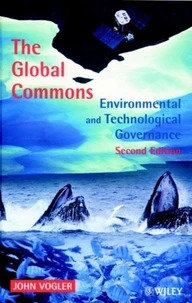The Global Commons. Environmental And Technological Governance, 2nde Edition
Par :Formats :
- Paiement en ligne :
- Livraison à domicile ou en point Mondial Relay indisponible
- Retrait Click and Collect en magasin gratuit
- Réservation en ligne avec paiement en magasin :
- Indisponible pour réserver et payer en magasin
- Nombre de pages247
- PrésentationBroché
- Poids0.38 kg
- Dimensions15,2 cm × 22,8 cm × 1,6 cm
- ISBN0-471-98574-0
- EAN9780471985747
- Date de parution20/04/2000
- ÉditeurWiley
Résumé
The global commons - the oceans, Antarctica, outer space and the atmosphere - are critical to the survival of human kind. Yet, they are, by definition, beyond the control of any government. How, then, can the governments of some 180 or more sovereign states co-operate effectively to protect and sustain the often fragile environment of the commons? This book develops and applies the tools of regime analysis to the question of how the various global commons are, or fail to be, governed effectively.
The new edition has been extensively re-written and expanded to take into account recent developments and includes a new conclusion on the connections between global and local commons. Involving the first systematic comparative analysis of governance regimes The Global Commons covers:
The Third Law of the Sea Convention, the deep seabed, whaling and marine pollution regimes.
Antarctica and the Madrid Protocol on Environmental Protection.
Outer space regimes for weapons, the operation of satellites and the emerging problem of orbital debris.
The global atmosphere, the Montreal Protocol for the protection of the stratospheric ozone layer and the developing climate change regime and the Kyoto Protocol.
The global commons - the oceans, Antarctica, outer space and the atmosphere - are critical to the survival of human kind. Yet, they are, by definition, beyond the control of any government. How, then, can the governments of some 180 or more sovereign states co-operate effectively to protect and sustain the often fragile environment of the commons? This book develops and applies the tools of regime analysis to the question of how the various global commons are, or fail to be, governed effectively.
The new edition has been extensively re-written and expanded to take into account recent developments and includes a new conclusion on the connections between global and local commons. Involving the first systematic comparative analysis of governance regimes The Global Commons covers:
The Third Law of the Sea Convention, the deep seabed, whaling and marine pollution regimes.
Antarctica and the Madrid Protocol on Environmental Protection.
Outer space regimes for weapons, the operation of satellites and the emerging problem of orbital debris.
The global atmosphere, the Montreal Protocol for the protection of the stratospheric ozone layer and the developing climate change regime and the Kyoto Protocol.


